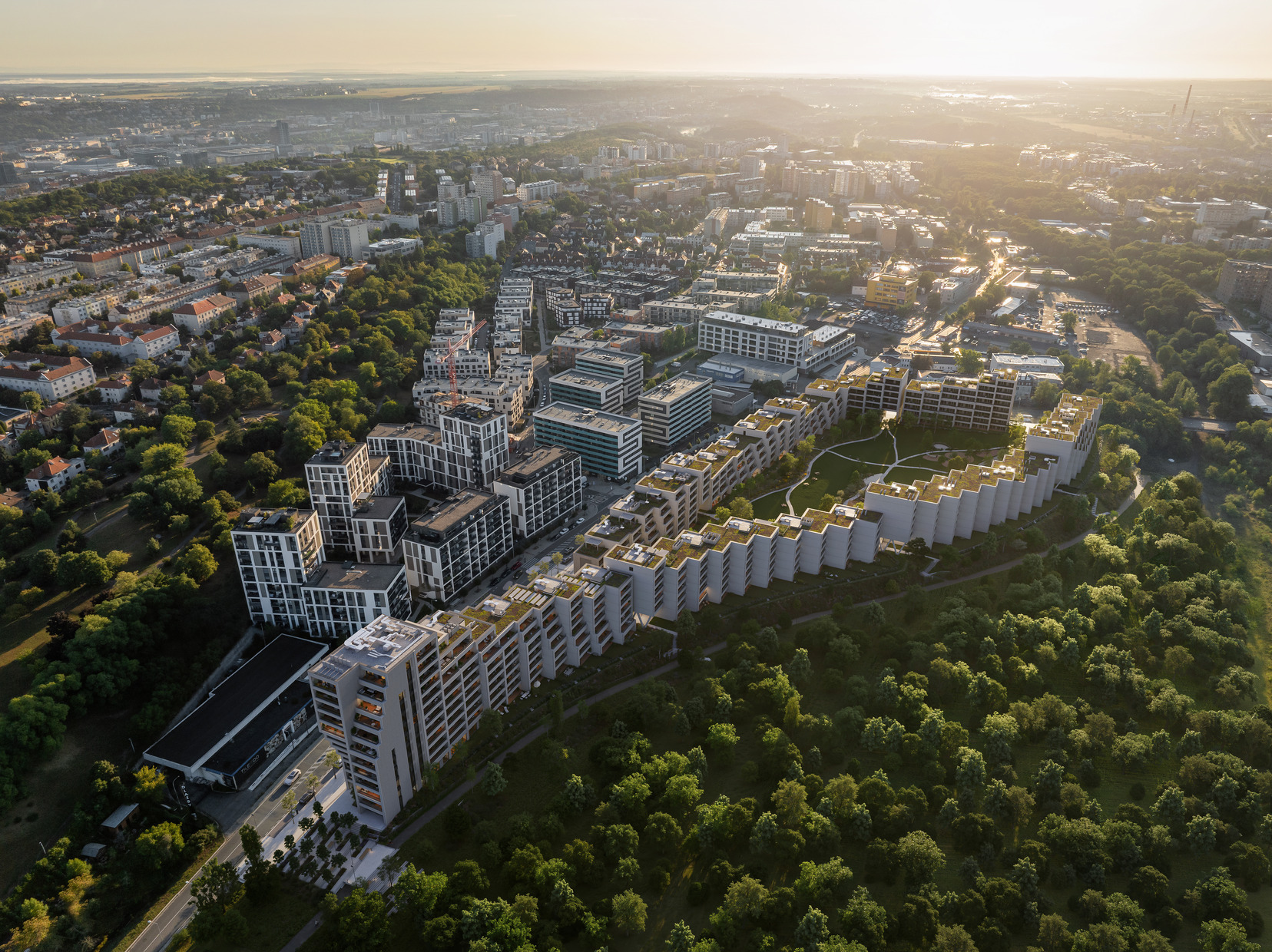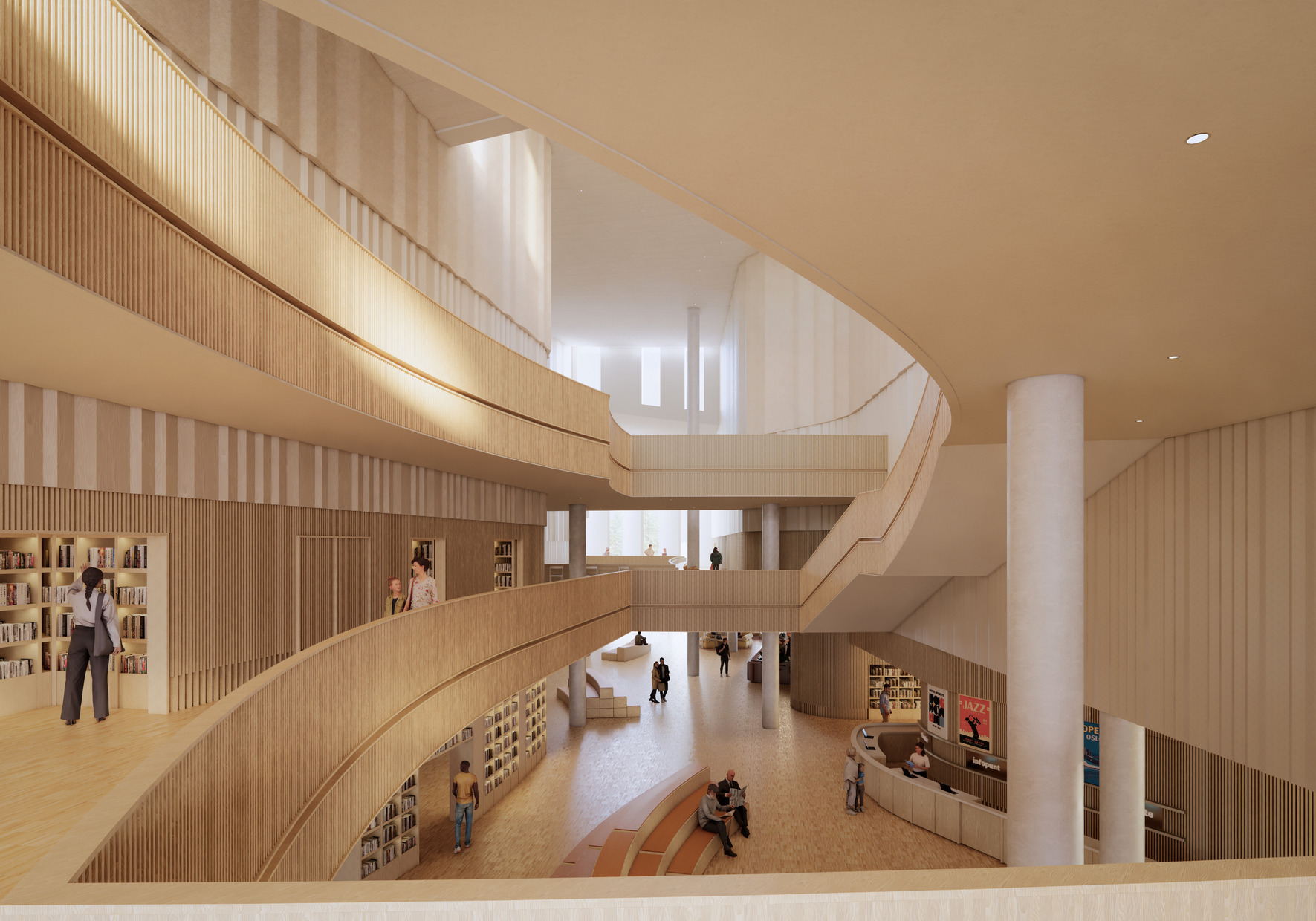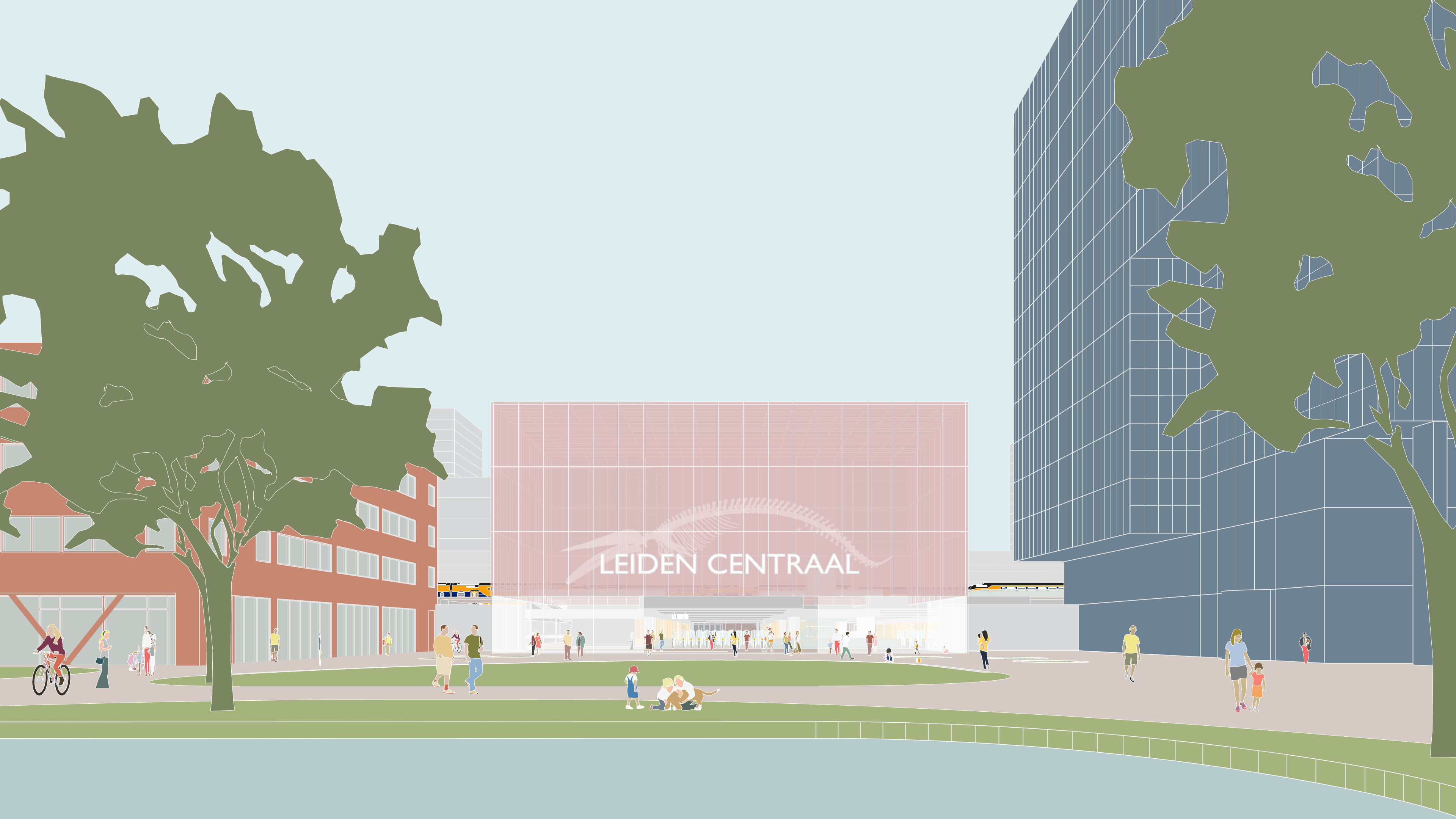Modular Timber Construction with High Sustainability Ambitions

At Schiphol, the first modular timber construction project is currently rising: an innovative rest area for bus drivers at the Tender Square. This project combines functionality with sustainability and aligns with Schiphol's sustainability ambitions.
The new rest area was needed because the Completion Double Lane System project required redesigning access to the existing bus square. To embrace circularity and reuse, the driver's area was built on the existing foundation slab from the former bus depot canopy, significantly reducing the project's CO₂ emissions. The redesigned bus square will include 53 parking spaces for electric buses.
CHALLENGE
The ambition of this project was to design a temporary but high-quality building that can be relocated to another location after approximately ten years. Additionally, a minimum Building Circularity Index (BCI) of 70% was required for the new driver's rest area. The building must consist of high-quality materials with a minimum lifespan of 30 years and offer a high level of comfort for users.

DESIGN SOLUTION
Sustainability studies in the initiative phase identified Cross Laminated Timber (CLT) modules as the most sustainable building system. They scored highest on circularity, detachability, and CO₂ footprint. The wood remains visible on the inside to emphasize the natural appearance. The exterior is finished with anodized aluminum, which consists of 70% recycled material. Solar panels on the roof contribute to the energy supply.
At Schiphol's request, BCN developed an integrated solution that guarantees uniformity for all future rest areas on airside. The modular façade functions as a connecting element and contributes to a tidy and recognizable façade appearance.
An important requirement was that the building must be relocatable after approximately ten years. Therefore, all connections were designed to be as detachable as possible, and a disassembly manual has been developed. This approach seamlessly aligns with Schiphol's vision for more sustainable, reusable, and relocatable buildings.

RESULT
The modular construction method offers significant sustainability benefits. Industrialized production processes ensure high precision with minimal construction waste. The prefab wood modules shorten construction time and limit transport movements, further reducing the ecological footprint. All materials used are bio-based, recyclable, or recycled.
With a realized BCI score of 71%, the project exceeds the established sustainability requirement. This result is primarily due to the high detachability, the bio-based construction, and the strategic reuse of the existing foundation slab.


